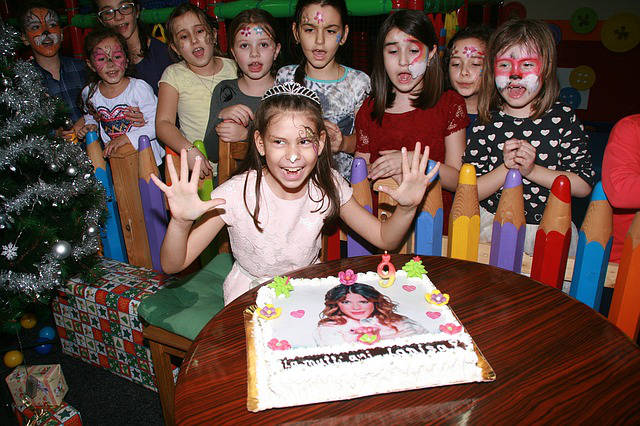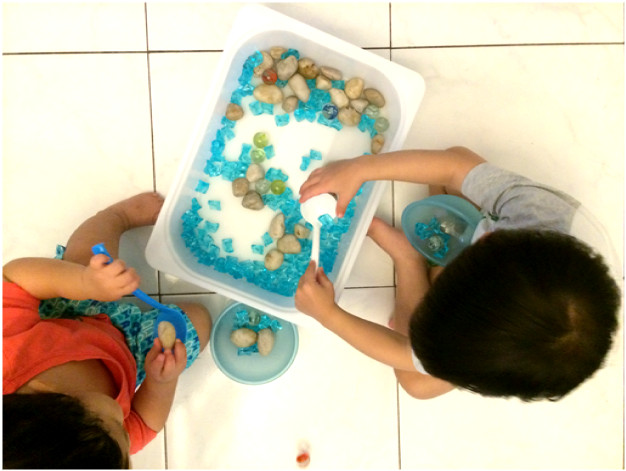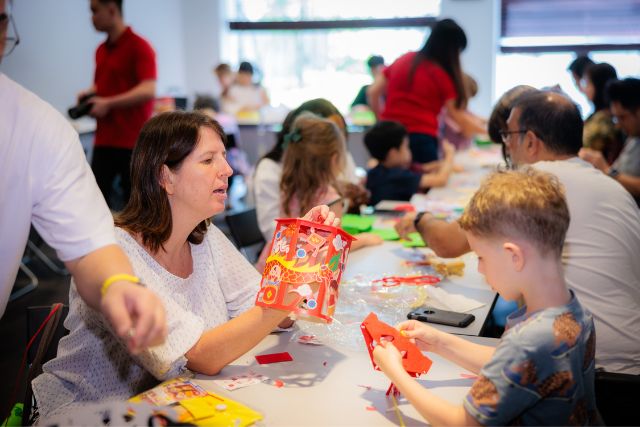As parents, we know that our children have good and bad days. Like all normal toddlers, they would also throw tantrums, argue and interrupt when their desires are not met. Rex Forehand, co-author of ‘Parenting the Strong-Willed Child’, believes that those behaviours are normal as our children assert their independence. There are also days where we stand by our house rules firmly and days where we cave in and just bend our rules. However, if you noticed that you are consistently caving in, have minimal authority and your children are consistently acting out to get what they want, you may want to re-assess your parenting methods.

According to Longman Dictionary of Contemporary English, a ‘spoilt person’ (spelt “spoiled” in American English), especially a child, is ‘rude and behaves badly because they have always been given what they want and allowed to do what they want’. Most children who are perceived as spoiled are usually described as “overindulged”, “grandiose”, “narcissistic” or “egocentric-regressed”, one who has never had the chance to experience disappointment and delayed gratification.
So how can we undo what we have been doing if we have been spoiling them and what can we do to ensure that they do not become spoilt brats?
1. Set limits
Child psychologist Sal Severe, author of ‘How to Behave So Your Child Will Too’ believes that it is important for parents to set consistent limits. Giving toddlers clear boundaries and limits will help them feel secure and are less likely for them to act out with bratty behaviours. This will also help your child know who is in-charge in the family. I know of a couple who sets three simple and clear non-negotiable rules within their household so that their twin toddlers can easily understand and remember, such as “no lying”, “no fighting” and “picking up your books and toys when you are done”.
Tip: Do not set too many rules, as it can be overwhelming and confusing for the child to remember and follow.
2. Wait it out

I waaaaannnnnt it NOW!!!
Even though many look at tantrums as a sign of being a bad parent, it is not. It is normal for a child to have tantrums. What is important is how parents respond to these tantrums. A child would usually stop his tantrum when he realizes that he will not get his desired attention regardless of the crying and fussing he does before his parents. If your child throws a tantrum because he didn’t get his way, try waiting for the tantrum to be over before you respond. Remain as calm as you can while being firm and clear in your response to the child. Tell him why he is not given his choice in that circumstance, and try as best as you can to validate his emotions.
For example, “I love you very much and I am sorry if you are mad. But we really have to go home now, because it is almost bedtime. You cannot hit or throw things when you don’t get your way.”
3. Divert his attention
Sometimes redirecting their attention could be one of the more effective ways to manage their tantrums. Get them interested in something else, such as one of his favourite activities before you plug them out from the play session at the playground or provide another toy if he is upset that he has to stop playing with the toys at his friend’s house. It may be tough to be consistent in your rules and constantly think about how you can manage his tantrums. But the payoff will be huge. Your child will learn how to wait and have self-control, manage his feelings and cooperate with you. These lessons are necessary and beneficial to help your child learn to be responsible as he or she grows up.
4. Provide options for them to choose
I find that my firstborn, who is turning two in December, display more cooperative behaviours if he is given an option to choose – such as the snacks he wishes to take for tea or the activities he wants to do at home. It seems like he feels happier doing that activity when he owns and makes his own decisions. There will be lesser acting out and tantrums. Of course, only offer choices that you can live with. And if there is something that is non-negotiable that has to be done, such as going to school, provide him with options that he can choose such as the shoes he would like to wear that day, or the snacks he can bring to school.
5. Gratitude and responsibility
Encouraging your children to be thankful will help them to be appreciative of things that are provided for them and also not take things for granted. They can be taught to say ‘thank you’ for little things such as receiving food or gifts. At the same time, we can also model the same behaviour by saying ‘thank you’ to them when they have rendered help to us at home or outside.
Secondly, helping them build a habit of saving for the things they want instead of indulging them readily, will help them to responsible and appreciate the things they have. By doing so, it grants them ownership to decide on the items they wish to buy and to save for – to consider what they already have and if the desire is a need or a want. Through that, our children may learn to appreciate their parents more, for working hard to earn the money to meet their basic needs such as food and clothing.
6. Caring for others

Okay, he may not look too happy sharing his umbrella but at least that’s a start!
Educating our children on how their actions will affect another person, will help them to become less egocentric and to consider others during their playtime. Children who are often overtly indulged at home may become possible bullies or spoiled brats at the public playground. As these children are so used to having their ways at home, they will continue that behaviour outside, even at the expense of the others. Surrounding our children with people or role models who are kind and caring will help them to model compassion. Modelling compassion and kindness to your family and friends will give your children clues on how to behave too.
By Yvonne Chee.
This article was first published in The New Age Parents e-magazine.
* * * * *
What are some other methods do you do at home to ensure that your child do not become spoiled brats?
Want to be heard 👂 and seen 👀 by over 100,000 parents in Singapore? We can help! Leave your contact here and we’ll be in touch.






















































